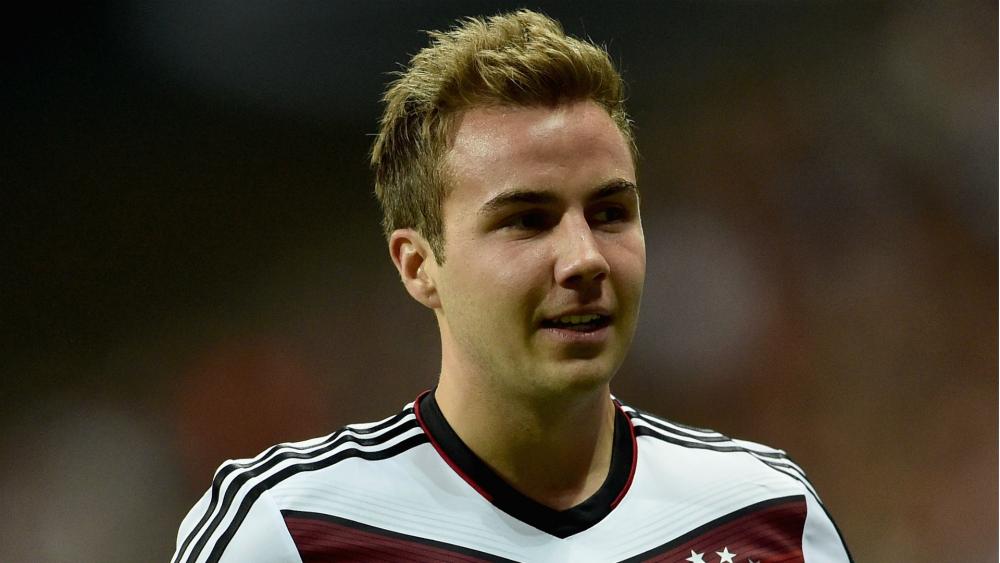Ranked! FourFourTwo's 25 best teams of the decade
We've seen some superb sides in the 2010s, including World Cup winners, European champions and some that didn't even win a thing...
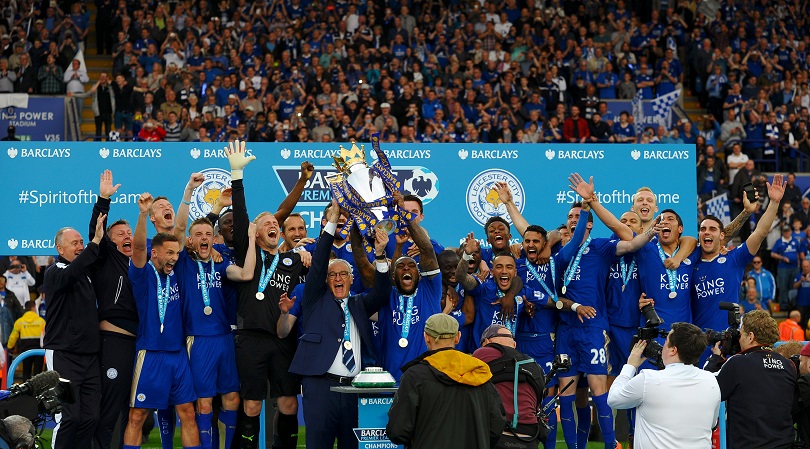
25. Unai Emery's Sevilla
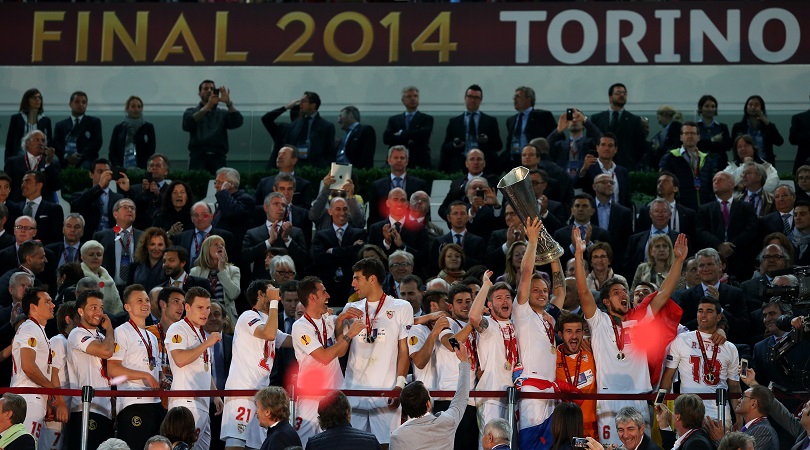
The Europa League is a notoriously tough tournament to win, so Sevilla’s achievement of bagging three trophies on the bounce shouldn’t be underestimated. In 2014, 2015 and 2016, Unai Emery’s side emerged triumphant from a competition in which 56 sides from across the continent take part.
Sevilla failed to crack the top four in La Liga during that three-year period, but they reigned supreme on the Europa League stage. A team that at various times featured the talents of Carlos Bacca, Ever Banega, Coke, Vitolo and Ivan Rakitic was expertly guided by Emery, who went on to reach another final with Arsenal in 2018/19.
24. Louis van Gaal's Netherlands
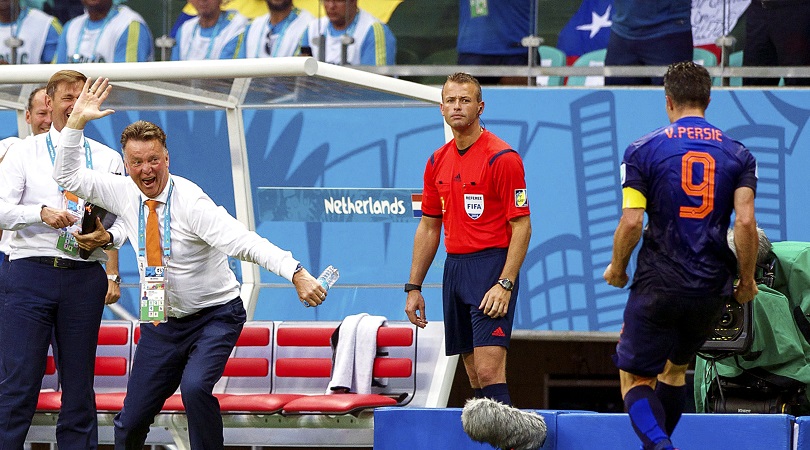
Drawn in a tough group alongside Spain and Chile, many tipped the Netherlands for an early exit at the 2014 World Cup. Instead, the Dutch made it all the way to the semi-finals, before comfortably beating hosts Brazil in the third-place play-off.
Louis van Gaal was the mastermind behind a team which focused on providing a solid foundation for forward trio Wesley Sneijder, Arjen Robben and Robin van Persie. Their 3-5-2 system worked a treat, not least in the 5-1 evisceration of reigning champions Spain. In the end, the Netherlands were just a penalty shoot-out away from the World Cup final.
23. Carlo Ancelotti's Real Madrid
Get FourFourTwo Newsletter
The best features, fun and footballing quizzes, straight to your inbox every week.
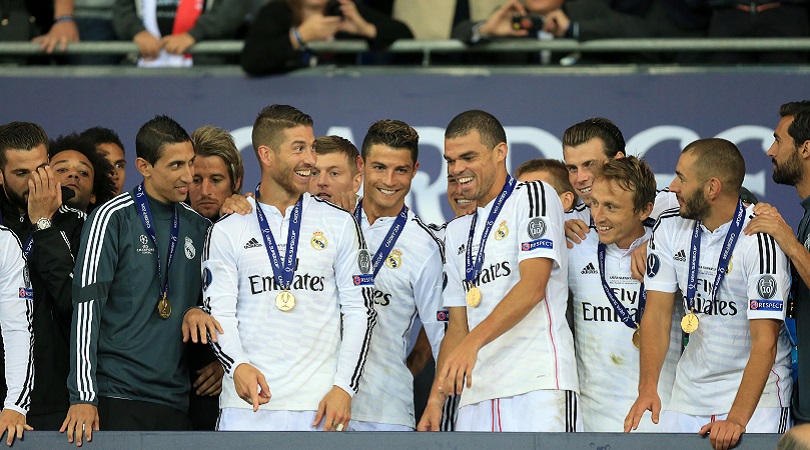
Fans of most clubs around Europe would happily wait 12 years for a Champions League crown, but that represented an excessively lengthy hold-up for Real Madrid supporters. Eventually Los Blancos claimed their 10th European title, coming from behind to ultimately thrash Atletico Madrid 4-1 in the 2014 showpiece in Lisbon.
A front three of Cristiano Ronaldo, Karim Benzema and Gareth Bale ran riot for much of the campaign, which also saw Madrid scoop the Copa del Rey. Ancelotti’s best decision was his redeployment of Angel Di Maria in midfield, with the Argentinian turning in a man-of-the-match performance against Atletico to help make laDecima a reality.
5 years ago today, Gareth Bale scored this outrageous solo goal against Barca in the Copa del Rey final.
We’re tired just watching this. pic.twitter.com/w8t20Gtpni— FourFourTwo (@FourFourTwo) April 16, 2019
22. France at the 2018 World Cup
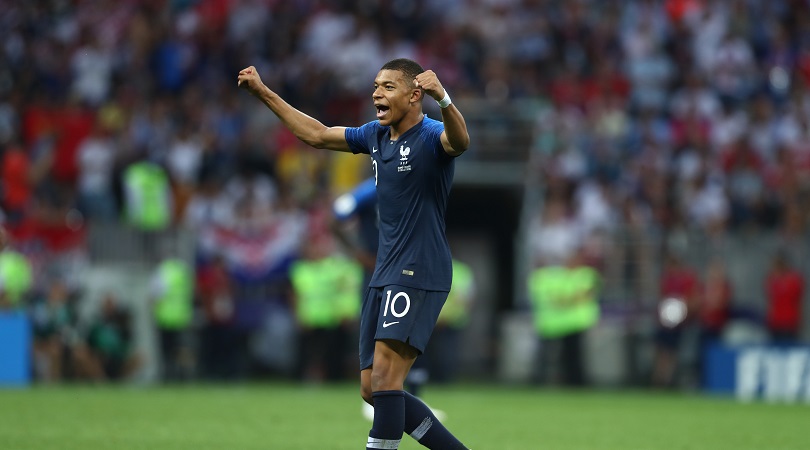
France got off to an unconvincing start in Russia, narrowly beating Australia in their opening game before turning in similarly indifferent displays against Peru and Denmark. Crucially, though, Didier Deschamps’ side grew stronger as the tournament wore on, and while they weren’t as open and attacking as many neutrals hoped, the oft-criticised manager deserves credit for fashioning a side that was at least equal to the sum of its uber-talented parts.
Their best display came in the Kylian Mbappe-inspired 4-3 victory over Argentina in the last 16, a scoreline which makes the game sound closer than it was. France then held their nerve against Uruguay and Belgium, before easing past Croatia in the final.
21. Ajax 2018/19
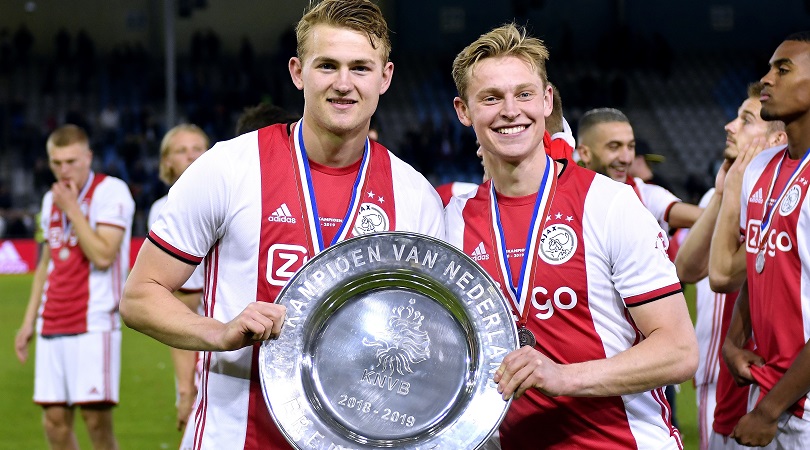
The manner of Ajax’s exit from the Champions League would have stung, but reaching the semi-finals was a magnificent achievement for a club which many had assumed would never reach that stage of Europe’s major competition again. Erik ten Hag’s side also won a domestic double, beating PSV to the Eredivisie title and Willem II to the KNVB Cup.
It was the Champions League run that provided the most thrills, though. The brilliant homegrown duo of Matthijs de Ligt and Frenkie de Jong received the most attention, but Dusan Tadic, Hakim Ziyech and Donny van de Beek were also integral parts of a team that won away at Real Madrid, Juventus and Tottenham during a white-knuckle ride of a knockout phase.
NOW READ Inside Ajax: how to become the world’s greatest talent factory
20. Jurgen Klopp's Borussia Dortmund
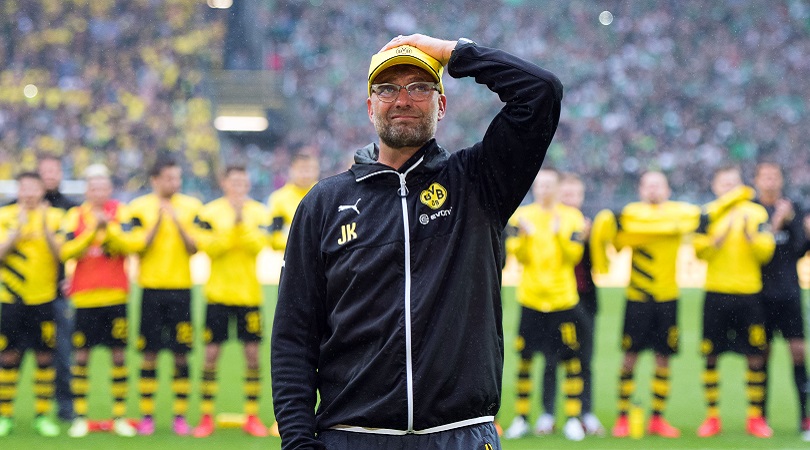
The season before Klopp arrived at Signal Iduna Park in 2008, Borussia Dortmund had finished 13th in the 18-team Bundesliga. Over the next seven years the 6ft 4in bundle of positive energy would transform BVB into one of the most feared sides in Europe, winning two Bundesliga titles and reaching the Champions League final along the way.
Klopp’s Dortmund were kings of the gegenpress, overwhelming opponents with their speed, intensity and quality. The Yellow Wall relished the heavy-metal football on display, as the likes of Robert Lewandowski, Mario Gotze, Marco Reus and Mats Hummels help to re-establish Dortmund as a Bundesliga heavyweight.
19. Manchester United 2012/13
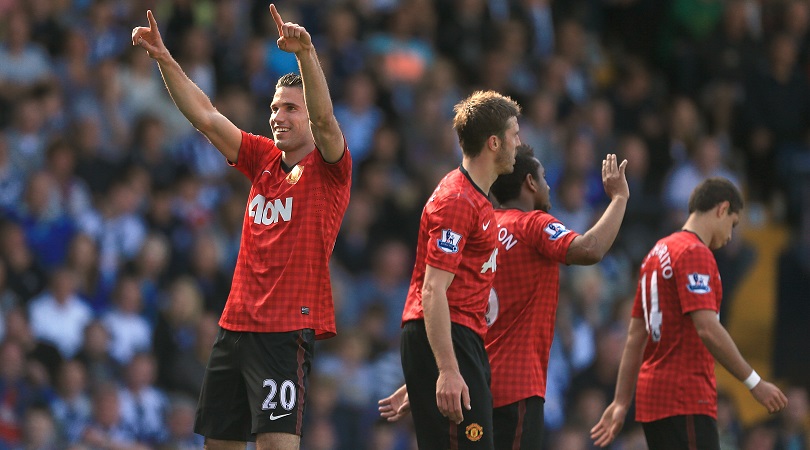
Having only narrowly beaten Manchester United to the Premier League title in 2011/12, Manchester City were expected to kick on and retain their crown in more comfortable fashion. Instead, United bit back, finishing on top of the pile to hand Alex Ferguson the perfect retirement present.
The summer signing of Robin van Persie proved decisive, with the irrepressible Dutchman bagging 26 league goals and four more in other competitions. Michael Carrick was also excellent in midfield, and David de Gea showed for the first time why United paid £19m for his services. But the star of the show was Ferguson, who celebrated one of the more straightforward of his 13 league titles at Old Trafford.
18. Mauricio Pochettino's Tottenham
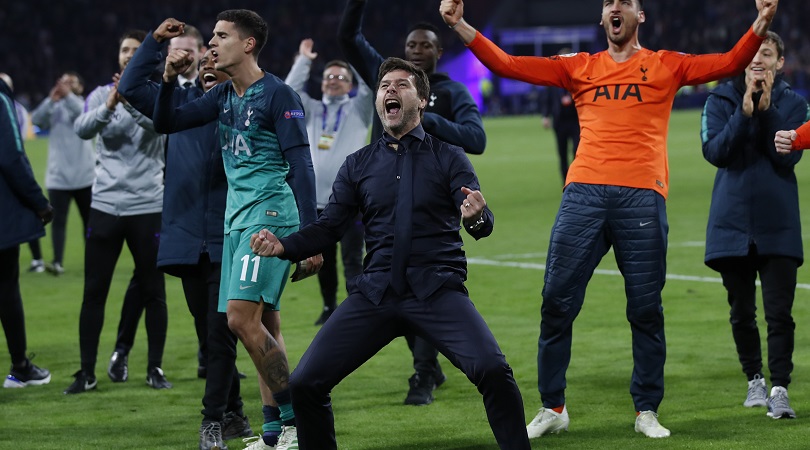
The history books may show that Pochettino’s Tottenham tenure didn’t yield a trophy, but that isn’t a barrier to their inclusion on this list. The Argentinian remade Spurs during his five and a half years at the helm, shedding their image as flakey no-hopers and creating a vibrant, steely side that finished second in the Premier League in 2017 (and should also have done the season prior).
Numerous players improved on Pochettino’s watch, most notably Harry Kane, Dele Alli, Toby Alderweireld and Christian Eriksen. In hindsight the wheels had already begun to come off before last season’s Champions League final appearance, but that doesn’t diminish what a marvellous accomplishment it was to take Spurs from Premier League also-rans to European runners-up.
17. Max Allegri's Juventus
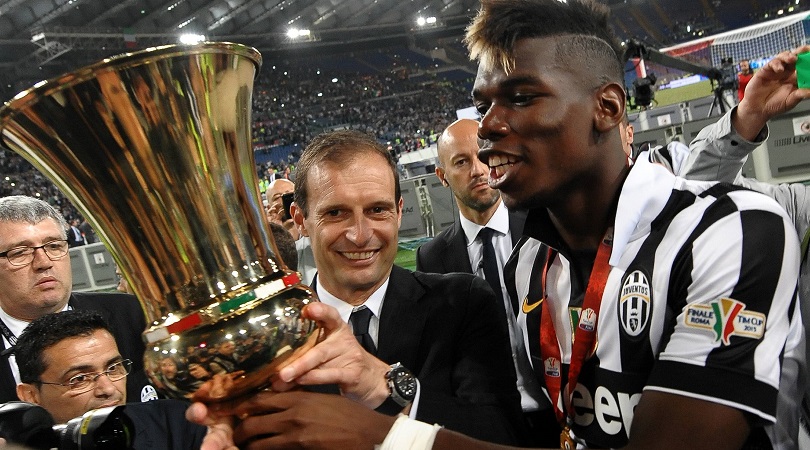
When Allegri arrived at Juventus in summer 2014, he was met with jeers, whistles and tomatoes. By the time he departed five years later, only Giovanni Trapattoni had won more Serie A titles with the club.
For the most part, Allegri’s Juventus were more functional than free-flowing, although they were capable of entertaining football at times - not least when Andrea Pirlo, Paul Pogba and Arturo Vidal comprised their midfield. As well as their domestic dominance, Juve reached two Champions League finals under Allegri, losing to Barcelona in 2015 and Real Madrid two years later.
16. Germany at the 2014 World Cup
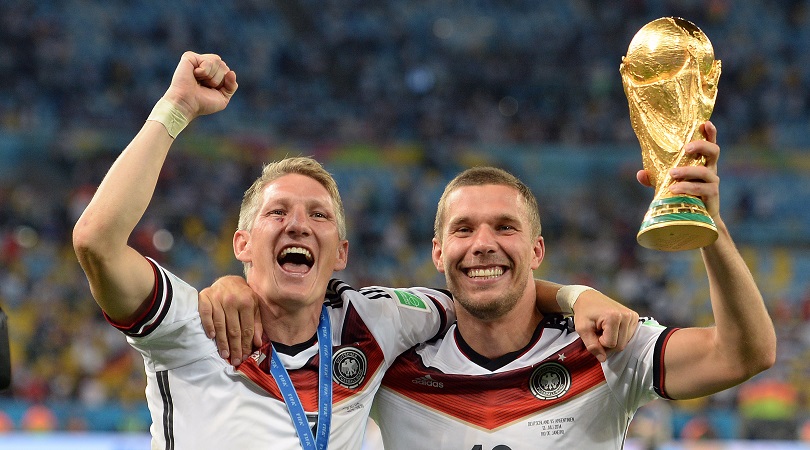
A young and exciting Germany side exceeded expectations at the 2010 World Cup, reaching the semi-finals after thrashing England and Argentina in the first two knockout rounds. Four years later they went one better, reaching the final and again overcoming the Argentinians to win the trophy for a fourth time.
Older and maturer, Low’s 2014 iteration also valued possession more than the counter-attackers of four years earlier. Germany didn’t have everything their own way in Brazil - they flirted with elimination against Algeria in the last 16 - but were ultimately deserved champions, with their 7-1 demolition of the hosts instantly going down in World Cup history.
15. Carlo Ancelotti's Chelsea
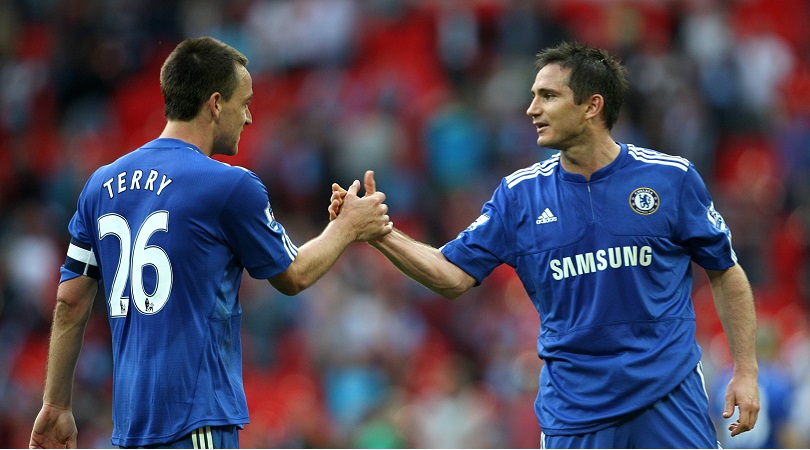
Chelsea had grown accustomed to success since Roman Abramovich’s 2003 takeover, but it wasn’t until Ancelotti’s arrival that they married silverware with high-class entertainment for the first time.
The Italian made a mockery of those who thought he would require a period of adaptation after taking his first job outside England. Chelsea may have only won the Premier League title by a point in 2009/10, but they outscored runners-up Manchester United by 103 goals to 86, and registered such memorable results as a 7-0 victory over Stoke, a 7-1 thrashing of Aston Villa and a title-sealing 8-0 dismissal of Wigan.
14. Roberto Mancini's Manchester City
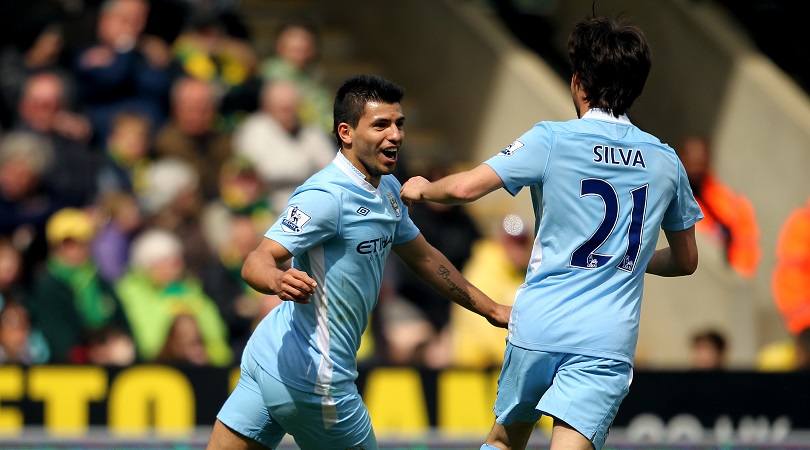
The most dramatic moment in Premier League history wouldn’t have come to pass had Manchester City maintained their early-season form. Mancini’s men were utterly dominant early in 2011/12, winning 11 of their first 12 games and inflicting a 6-1 defeat on rivals Manchester United.
A wobble in the spring saw them fall eight points adrift of Alex Ferguson’s side, only for six wins from six - a run which featured Sergio Aguero’s last-gasp goal against QPR - to lift them back above United on goal difference. A spine of Vincent Kompany, Yaya Toure, David Silva and Aguero was among the best English football had seen for some time.
13. Chelsea 2016/17
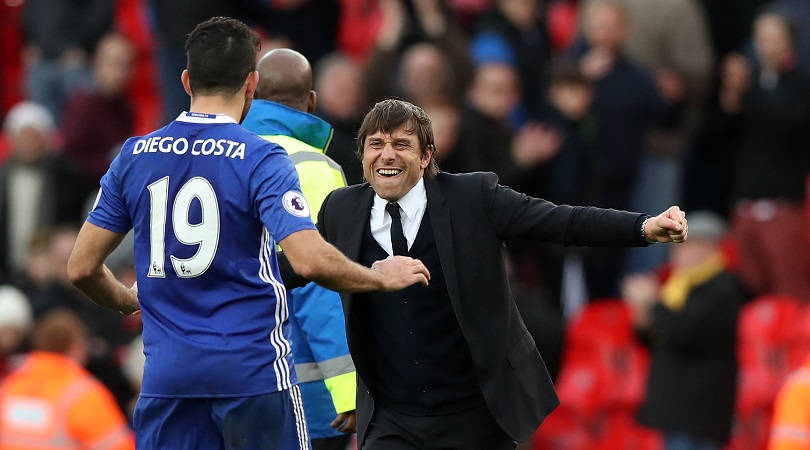
According to the Premier League pre-season predictions, 2016/17 was set to feature a titanic title tussle for the title between Pep Guardiola’s Manchester City and Jose Mourinho’s Manchester United. In fact it was Chelsea that emerged triumphant, with Eden Hazard, N’Golo Kante, David Luiz and Diego Costa to the fore.
The Blues won only half of their first six matches, before Conte made the most decisive tactical switch in Premier League history. Out went the 4-1-4-1 and in came a 3-4-2-1, a configuration that opponents couldn’t get to grips with until it was too late.
12. Monaco 2016/17
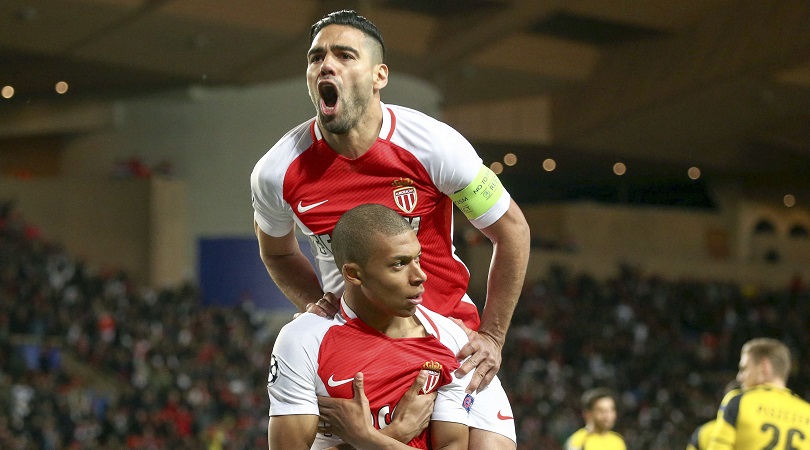
In terms of single-season achievements this decade, few can top Monaco’s ousting of PSG at the summit of the Ligue 1 standings. Having previously been most renowned for their miserly defence, the club from the principality threw off the shackles in 2016/17, scoring 103 goals en route to the French title.
A fearless, forward-thinking team featuring the youthful vim of Kylian Mbappe, Bernardo Silva, Fabinho and Benjamin Mendy - and with the revitalised Radamel Falcao serving as the experienced spearhead - Monaco finished a whole eight points clear of a cash-laden PSG. They also netted three goals in each of their first four Champions League knockout games against Manchester City and Borussia Dortmund, before bowing out to Juventus in the semi-finals.
11. Jurgen Klopp's Liverpool
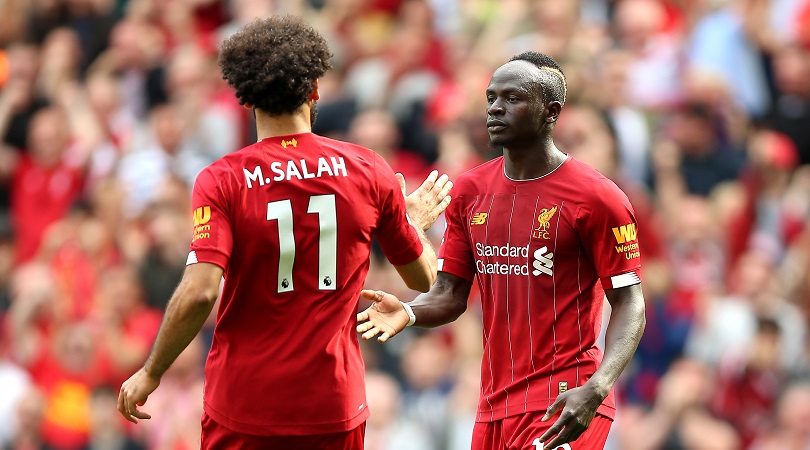
Liverpool were in need of a pick-me-up in late 2015, and Klopp was the perfect manager to give them it. His debut campaign at Anfield ended in disappointment as the Reds lost the Europa League final to Sevilla, but despite that defeat it was clear that the German had already begun to get his high-energy, heavy-pressing ideals across.
Fast forward three years and Liverpool had just been crowned champions of Europe for a sixth time, having also reached the previous year’s final against Real Madrid. Klopp now looks set to end the club’s 30-year wait for a league title, and could yet feature in a future Teams of the 2020s list having recently extended his contract until 2024.
10. Diego Simeone's Atletico Madrid
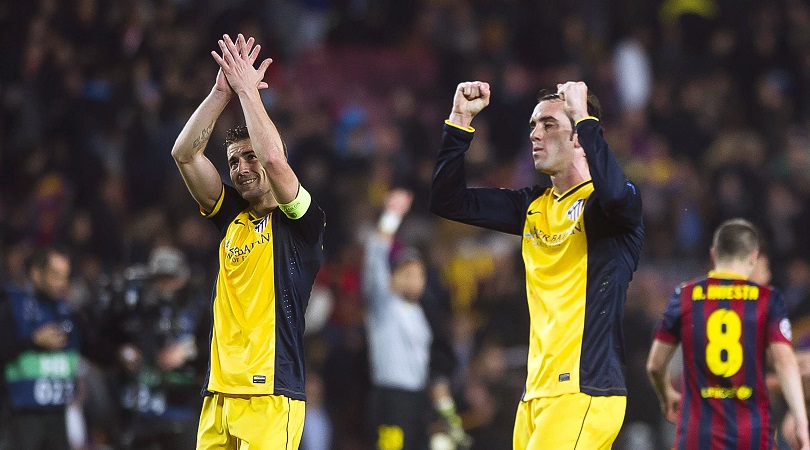
Atletico Madrid made one of the best decisions in their history towards the start of the decade, appointing Diego Simeone as their new manager in December 2011. The Argentinian promptly won the Europa League, followed by the Copa del Rey a year later and, in 2014, the crowning glory that was the league title.
It’s impossible to overstate the extent to which the odds were stacked against Atletico in 2013/14, by which time the Real Madrid-Barcelona La Liga duopoly had long been established. Simeone created a well-organised, tactically intelligent unit that benefited from a ferocious team spirit, a combination which proved sufficient to topple the division’s two heavyweights. Atletico also came within seconds of winning the Champions League a few weeks after sealing their La Liga crown, only to lose the Lisbon final to Real Madrid in extra time.
9. Luis Enrique's Barcelona
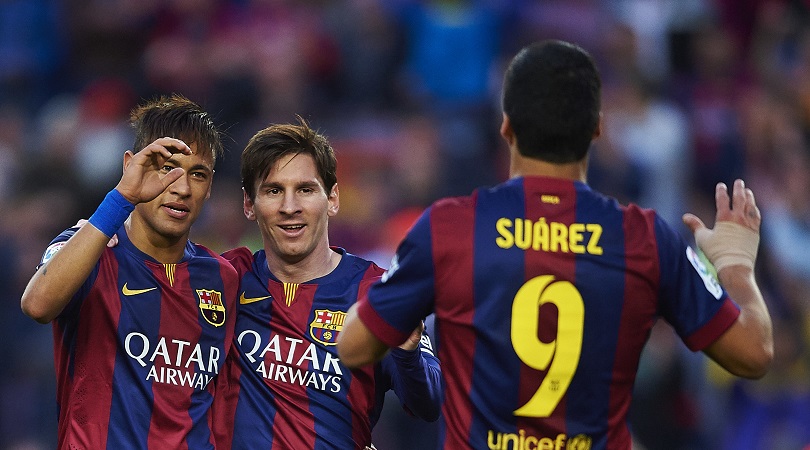
Barcelona were in trouble midway through the 2014/15 campaign. A 1-0 loss to Real Sociedad at the start of January prompted a so-called crisis at the Camp Nou; after beating Atletico Madrid a week later, manager Luis Enrique admitted that adversity would return as soon as they lost another game.
It’s just as well, then, that the Blaugrana lost only twice more all season - and neither proved decisive. Led by the sensational front three of Lionel Messi, Luis Suarez and Neymar, Barcelona romped home in La Liga, the Copa del Rey and the Champions League, impressively overcoming Manchester City, PSG, Bayern Munich and Juventus on their way to the latter gong.
8. Pep Guardiola's Bayern Munich
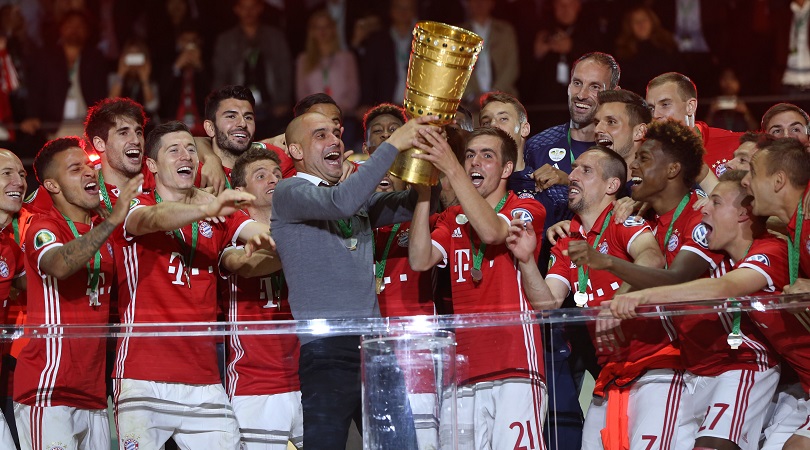
Bayern Munich’s failure to win the Champions League - or even reach the final - during Guardiola’s three years at the helm denies them a place higher up this ranking. Yet there’s an argument that the Bayern of 2013 to 2016 produced more near-perfect performances than virtually any other team covered here.
The Bavarians won 82 of 102 Bundesliga games under Guardiola, winning the title in each of his three seasons at the Allianz Arena. The Catalan became increasingly tactically innovative too, moving Philipp Lahm into midfield, introducing the concepts of inverted full-backs and false No.10s, and employing a myriad of different formations, none of which seemed to ever disrupt Bayern’s relentless brilliance.
7. Jose Mourinho's Inter
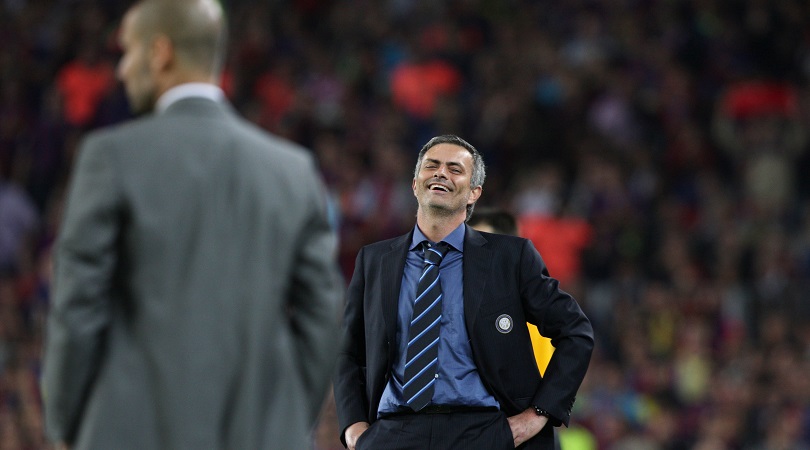
Mourinho’s stock has gradually fallen as the decade has progressed, but in 2010 he was Europe’s most in-demand coach after guiding Inter to the greatest season in their history. The Nerazzurri fought off a stiff challenge from Roma to win the Serie A title and beat the same opponents in the final of the Coppa Italia, but it was in Europe where this team attained legendary status.
The Inter of 2009/10 are best remembered for Mourinho’s masterclass against Barcelona in the Champions League semi-final second leg, but it would be unfair in the extreme to paint them as a defensive side: Inter produced some tremendous football at times that term, not least in the 3-1 win against Barcelona in the first meeting between the sides. Mourinho signed off with victory over Bayern Munich in the final, earning himself a move to Real Madrid in the process.
6. Zinedine Zidane's Real Madrid
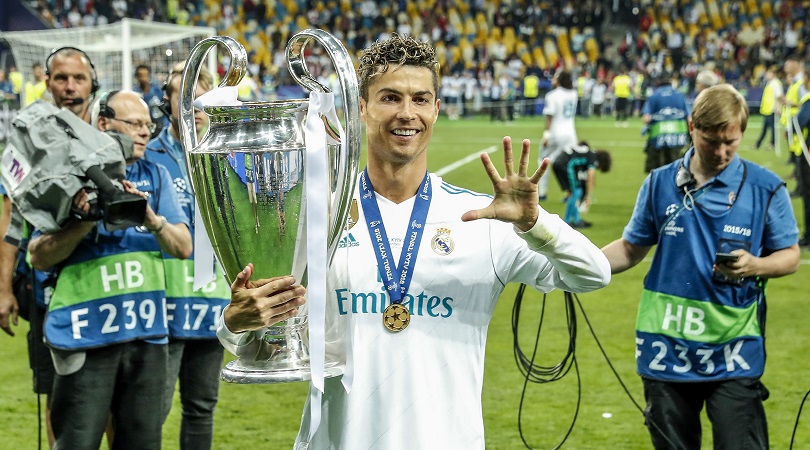
It's hard to argue that Real Madrid were undoubtedly and continually the best team in Europe between 2015/16 and 2017/2018, but the record clearly states that no other side won the Champions League in that three-year period. And while Zinedine Zidane didn’t oversee anything close to a tactical revolution, he did successfully mould Madrid’s collection of stars into a functioning collective.
Madrid benefited from a settled side throughout this period, as president Florentino Perez reined in his cash-splashing instincts. Cristiano Ronaldo was patently the standout performer, but Sergio Ramos, Toni Kroos, Gareth Bale, Marcelo, Dani Carvajal and Luka Modric were also crucial to los Blancos becoming the first team to win two - let alone three - consecutive Champions Leagues in the competition’s present format.
5. Bayern Munich's Treble winners
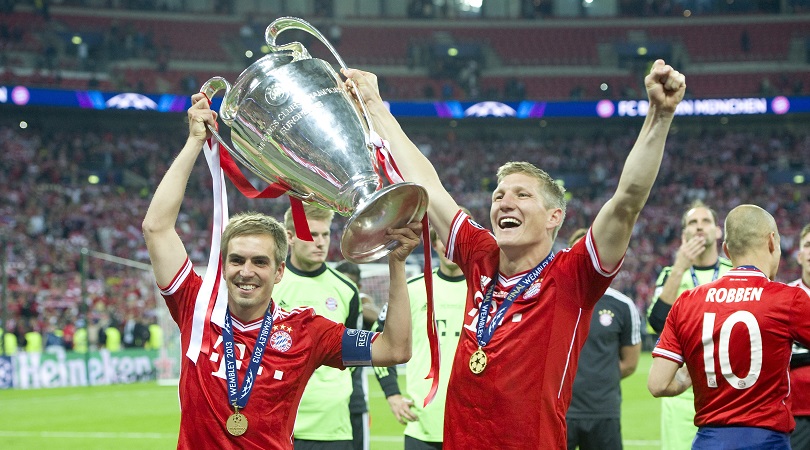
Jupp Heynckes’ third spell as Bayern Munich boss got off to an inauspicious start. The Bavarians were beaten on the opening day of the Bundesliga season in 2011/12 and ended the campaign empty-handed, finishing as runners-up in the German top flight, the DFB-Pokal and the Champions League.
They went one better in all three competitions the following season, becoming the first German team to complete the treble. Bayern finished a remarkable 25 points clear of Borussia Dortmund in the Bundesliga and beat the same opponents in the Champions League final, having famously crushed Barcelona 7-0 on aggregate in the last four.
4. Claudio Ranieri's Leicester
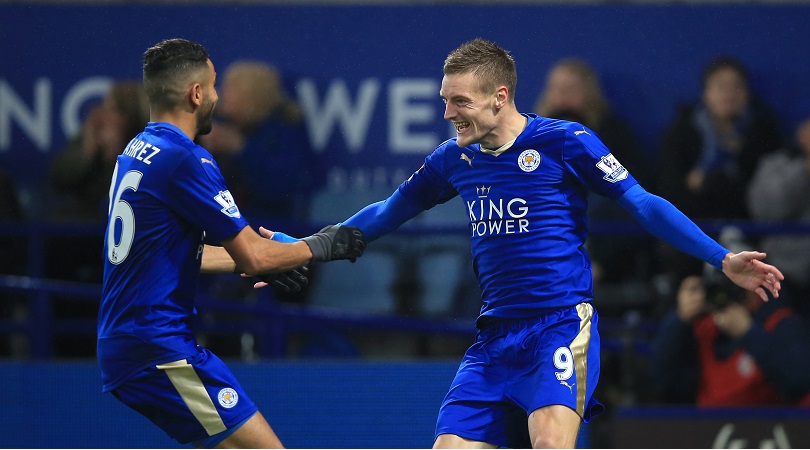
The underdog story of the decade and the greatest title triumph in English football history. Leicester were among the favourites for relegation when 2015/16 kicked off, only for the unfancied East Midlanders to end the campaign as Premier League champions by a substantial 10-point margin.
Having adopted a you-score-two-we’ll-score-three approach in the early part of the season, Leicester showed superb steel and solidity in the run-in, racking up six wins to nil in their final 10 matches. Jamie Vardy, Riyad Mahrez and N’Golo Kante were the main men in a terrific counter-attacking team, with the serene but shrewd Ranieri finally able to celebrate a league title as a manager.
3. Pep Guardiola's Manchester City
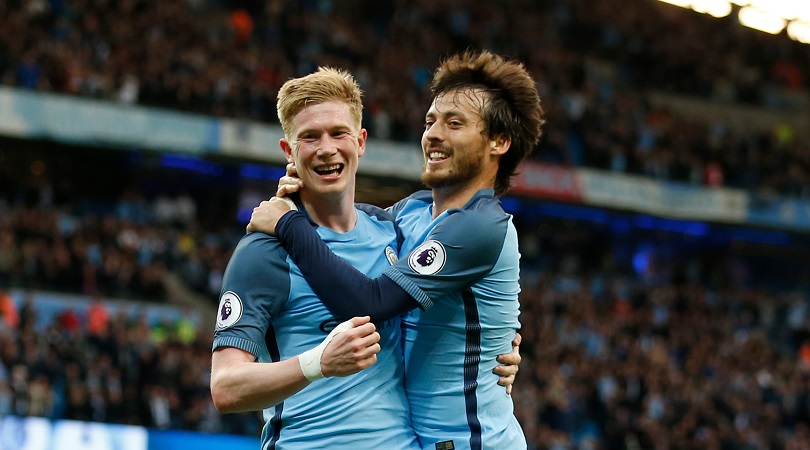
After an underwhelming debut season in the Premier League, many opined that Guardiola would have to change his ways if he wanted to be a success in England. Instead, the Catalan doubled down and came back stronger, expertly guiding Manchester City throughout a record-shattering campaign in 2017/18.
City won more points, scored more goals and registered a better goal difference than any other team in English top-flight history. They were arguably even better the following year, amassing two fewer points but holding off a phenomenal Liverpool side to retain the trophy. Kevin De Bruyne, Sergio Aguero, David Silva, Bernardo Silva and Raheem Sterling have all excelled under Guardiola, but the manager has been the foremost figure in City’s recent spell of domestic dominance.
2. Vicente del Bosque's Spain
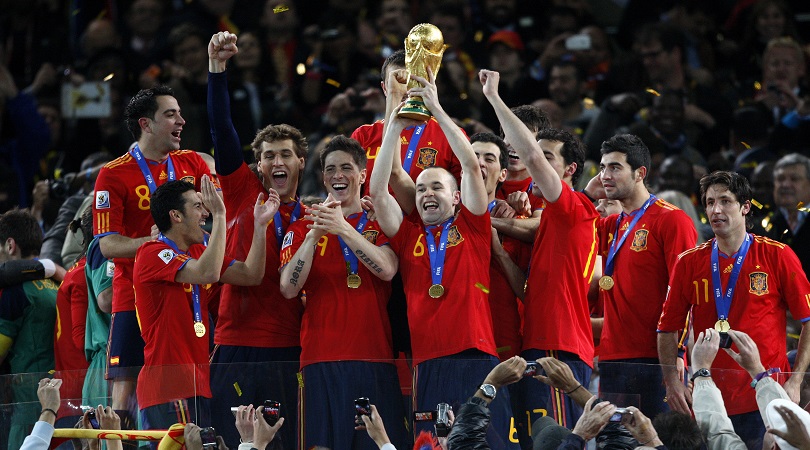
Other tournament favourites may have panicked after losing their opening World Cup game, but there was no hint of alarm from within the Spain camp following a 1-0 defeat by Switzerland. Del Bosque’s side continued to practice the patient possession play that had become their hallmark, going on to beat Honduras, Chile, Portugal, Paraguay, Germany and the Netherlands - conceding just one goal along the way - to win the tournament in South Africa.
They followed that up with another triumph at the European Championship two years later. Critics argued that their metronomic passing had become dull and defensive, only for Spain to force them into silence with a 4-0 victory over Italy in the final. Their pool of top-class midfielders - Xavi Hernandez, Andres Iniesta, Sergio Busquets, Xabi Alonso, David Silva, Cesc Fabregas - remains frightening seven years on.
1. Pep Guardiola's Barcelona
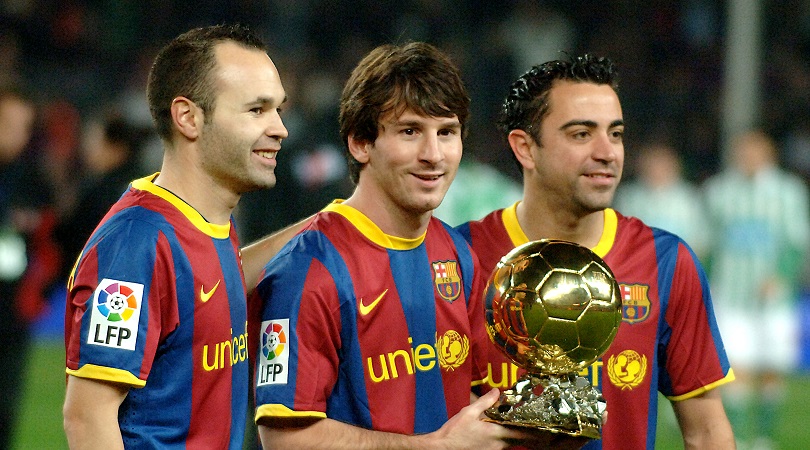
Guardiola’s Barcelona had already won two La Liga titles and the Champions League by the start of the 2010s, but their best was still to come. The Blaugrana again topped the table in Spain in 2010/11 and were also crowned champions of Europe, beating Manchester United 3-1 at Wembley in what was arguably the greatest performance in a final in the tournament’s history.
Lionel Messi was the side’s standout player but Barcelona’s style was best encapsulated by their midfield trio of Xavi Hernandez, Andres Iniesta and Sergio Busquets; all three were academy graduates and all three relied primarily on their technical ability, rather than any physical gifts. Dani Alves, Gerard Pique and David Villa were also important, while Guardiola’s tactical brilliance and intense personality ensured that Barcelona never let their standards drop. Not just the best team of the decade but a contender for the greatest of all time.
While you're here, why not take advantage of our brilliant subscribers' offer? Get the game's greatest stories and best journalism direct to your door for only £9.50 every quarter – that's roughly £2.90 per issue. Cheers!
THEN READ...
LIST FourFourTwo's 50 favourite football shirts
RANKED The 101 greatest football players of the last 25 years
LEGENDS FourFourTwo's 100 Greatest Footballers EVER
FIFA 20 Career mode best young players: 15 wonderkids with world-class potential
Greg Lea is a freelance football journalist who's filled in wherever FourFourTwo needs him since 2014. He became a Crystal Palace fan after watching a 1-0 loss to Port Vale in 1998, and once got on the scoresheet in a primary school game against Wilfried Zaha's Whitehorse Manor (an own goal in an 8-0 defeat).

